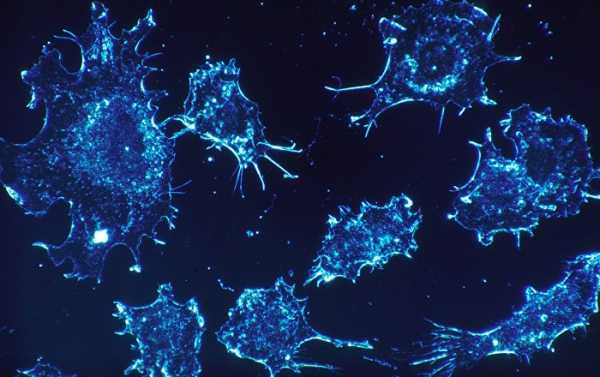
In collaboration with their foreign colleagues, researchers from the National Research Nuclear University MEPhI’s Institute of Engineering Physics for Biomedicine have recently developed polyelectrolyte microcapsules encoded with quantum dots, which can be used to diagnose and treat malignant tumors.
MOSCOW (Sputnik) — In collaboration with researchers from the Moscow Institute of Physics and Technology (MIPT), the Max Planck Institute of Experimental Medicine (Germany) and the University of Reims Champagne-Ardenne (France), scientists from the National Research Nuclear University MEPhI’s Institute of Engineering Physics for Biomedicine have recently developed polyelectrolyte microcapsules encoded with quantum dots (QDs), which can be used for diagnosing and treating cancer.
Polyelectrolyte microcapsules are one of the most promising ways for targeted delivery and controlled release of medications, contrast agents and fluorescent tags for diagnosing and treating various diseases, including cancer.
Researchers developed a way to obtain microparticles with multilayer membranes, which consist of oppositely charged polyelectrolytes and are encoded with quantum dots — fluorescent nanocrystals with a bright glow and a high level of photostability. These properties allow nanocrystals to become the perfect fluorescent tags for visualizing intracellular penetration and microcapsule delivery.
The ability to use quantum dots that can fluoresce in various spectral ranges in theranostics and targeted drug delivery based on polyelectrolyte microcapsules is allowing researchers to explore new ways to monitor their movement in the human body.
“The tests showed that we can trace the movement of microcapsules even on intracellular levels through monitoring the distribution of microcapsules and their contents among cellular compartments,” said Galina Nifontova, the leading researcher of the international project and a researcher at MEPhI’s Laboratory of Nano-Bioengineering.
The analysis of the QD-encoded microcapsules’ properties shows that they can be used to develop effective next-generation theranostics agents, Nifontova added. “That is, agents that can be used for diagnostics and targeted drug delivery”, she explained.
Researchers also determined the optimal amount of quantum dots to ensure that the encoded microcapsules have optimal fluorescent properties.
In their research, scientists demonstrated the absorption of microcapsules by cells, and, particularly, by murine macrophages, thus confirming the possibility of effectively using the developed system for visualizing living cells, as well as transporting and delivering microcapsules to these cells. The results of the research were published in the Nanoscale Research Letters journal.
The study was carried out within the framework of the Russian Ministry of Education and Science’ State contract “Multifunctional stimuli-responsive microcapsules and nanocrystals for early diagnostics and effective treatment of lung and breast cancer”.
Sourse: sputniknews.com






